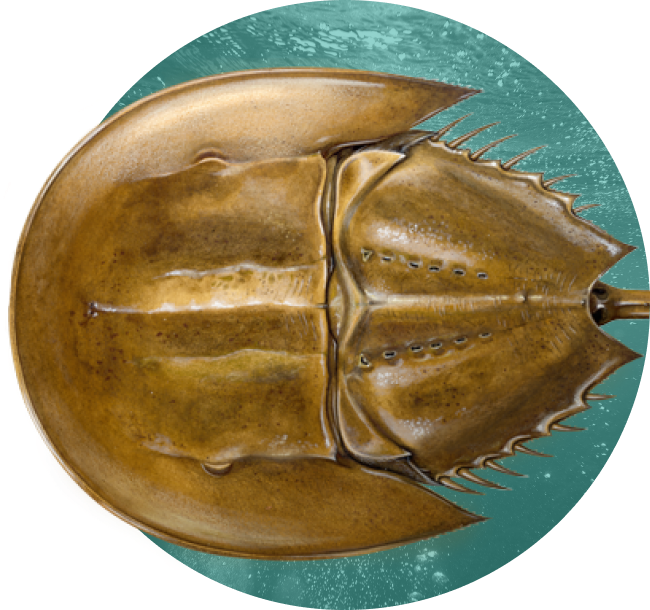Arlington, VA – The Atlantic States Marine Fisheries Commission (Commission) is issuing a Request for Proposals (RFP) for a contractor to design and conduct a stakeholder engagement process to inform revisions to the Delaware Bay Horseshoe Crab Adaptive Resource Management (ARM) Framework using structured decision making methods. The contractor would facilitate educational meetings, design and facilitate a stakeholder workshop, meet with the Commission’s horseshoe crab technical committees to develop potential modifications to the ARM Framework based on stakeholder input, and develop a report of workshop conclusions and recommendations to the Commission’s Delaware Bay Ecosystem Technical Committee and Horseshoe Crab Management Board (Board).
Since 2013, the Board has used the Adaptive Resource Management (ARM) Framework to determine harvest levels for the bait fishery in the Delaware Bay states of New Jersey, Delaware, Maryland, and Virginia based on the abundance levels of horseshoe crabs and shorebirds. In 2021, a revision to the ARM Framework was completed to address feedback from the previous peer review panel, incorporate newly available data, and transition to new modeling software. The adoption of the 2021 ARM Framework Revision resulted in extensive public concern, focused in large part on the potential for female horseshoe crab harvest under the revised ARM Framework and its impact on the rufa red knot, a migratory shorebird listed as threatened under the Endangered Species Act that depends on horseshoe crab eggs as a major food source in the Delaware Bay region during its migration. However, stakeholder groups in the Delaware Bay region hold diverging values and perspectives on management of the horseshoe crab resource. Commercial industry participants indicate they still value the harvest of female horseshoe crabs. Conversely, environmental groups have advocated for zero female horseshoe crab harvest from the Delaware Bay population.
Given these conflicting stakeholder goals and values, in July 2024, the Board convened a Horseshoe Crab Management Objectives Workshop to explore potential future objectives and management approaches for the Delaware Bay-origin horseshoe crab fishery. The workshop included a small group of stakeholders
representing environmental NGO, fishing, biomedical, bird and horseshoe crab scientists, and management perspectives, and produced several recommended actions to address stakeholder concerns and values. A consensus recommendation from the workshop was that the Utility, Reward, and Harvest Policy (U/R/H) Functions of the ARM Framework (i.e., mathematical functions within the ARM Framework that reflect values placed on horseshoe crabs and red knots) be reevaluated and refined with stakeholder input. The structure of these functions is the key mechanism by which stakeholder values are translated into horseshoe crab harvest levels. Thus, increased stakeholder understanding, engagement, and input into these functions is the key mechanism by which ASMFC seeks to increase acceptance of the ARM across disparate groups and interests.
Proposals must be submitted, as a single file, an electronic proposal by email no later than 11:59 PM on August 8, 2025, to Caitlin Starks, Senior Fishery Management Plan Coordinator. Please see the RFP for
more details, qualifying requirements, and submission instructions. The RFP is available at https://asmfc.org/resources/rfp-for-horseshoe-crab-workshop/.
Please contact Caitlin Starks, Senior Fishery Management Plan Coordinator, at cstarks@asmfc.org for questions regarding the request for proposals.

